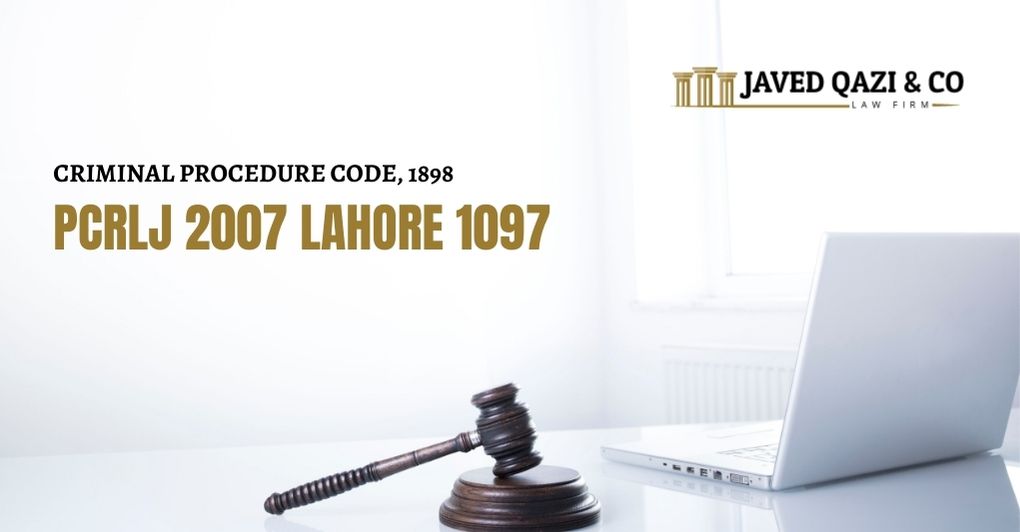- When Every Man lives without "LAW" Every Man lives without "FREEDOM"
- [email protected]
- Office Hours: 08.00am - 10.00pm
- 0300-8220365 , 0313-1234169 , 0334-2629763, 0333-3653467
- Suite #. 314, The Plaza, Plot # G-7, Block # 9, Near Do Talwar, Clifton-Karachi.

PCRLJ 2007 LAHORE 1097
- Javed Qazi Lawfrim
- Traffic Law
—S. 7(e)—Appreciation of evidence—Abductee had rightly picked up all the three accused in the identification parade and had also identified them in the Court—Demand of ransom by the accused and payment of Rupees four Ins to them as such according to their instructions had been proved on record—Offence under S.7(e) of Anti-Terrorism Act, 1997, being non-compoundable , any compromise between the parties was of no consequence—Accused had not led any evidence to establish their friendship with the abductee or regarding the complicity of the abductee himself in the crime—Entire ransom amount had been recovered from accused who were arrested by the police from the house on the pointation of abductee—Abductee had no motive for false implication of accused in the case—Incriminating recoveries from the accused including the ransom amount, pistols with live cartridges, mobile phone and motorcycle of abductee, had further connected the accused with the offence—Investigating Officer in the peculiar circumstances of the case could not possibly join persons from the public in recovery proceedings, even otherwise police, witnesses were as good witnesses as other witnesses—Recoveries had corroborated the evidence furnished by the prosecution witnesses—Even if the recoveries had not been proved in a case of kidnapping or abduction for ransom, the determining factor was the object behind the crime—Conviction and sentence of accused were upheld in circumstances.
2014 PLD 644 MUHAMMAD YOUSAF v State
Preamble, Third Sched., Ss.1, 6, 7, 23 & 34—Constitution of Pakistan, Art.199—Constitutional petition—Transfer of case from Anti- Terrorism Court to regular court—Scope of S.23 of the Anti-Terrorism Act, 1997––
Anti– Terrorism Court dismissed applications of accused involved in different offences namely murder by firing, acid throwing and injury caused by firing in mosque, for transfer of their cases to regular courts—Validity—Purpose of Anti-Terrorism Act, 1997 was to prevent terrorism, sectarian violence and conducting speedy trial of heinous offences—In order to decide whether an offence was triable under the Anti-Terrorism Act, 1997 or not, the courts had to see whether the act had tendency to create sense of fear and insecurity in the mind of people or a section of society—Such act might not necessarily have taken place within the view of general public—
Schedule annexed to a statute was as important as the statute itself—Schedule could be used to construe the provisions of the body of the Act—Third Schedule to the Anti-Terrorism Act, 1997 had to be given its due importance and, first three paragraphs of the same were general in nature while the fourth paragraph specifically described offences—In order to bring an offence within ambit of Anti-Terrorism Act, 1997 and the jurisdiction of the Anti-Terrorism Court, nexus of such offence with S.6 of the Anti-Terrorism Act, 1997 was a pre-requisite—
Paragraph 4 of the Schedule to the Anti-Terrorism Act, 1997 categorically mentioned the offences which would be tried only by the Anti-Terrorism Court—Offences in question were within the purview/ambit of the paragraph 4 of the Third Schedule to the Anti-Terrorism Act, 1997 and were triable by the Anti-Terrorism Court—Petitions were dismissed.

